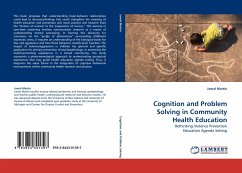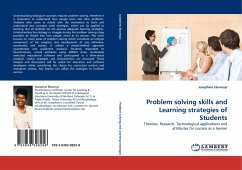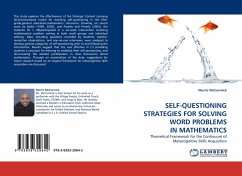
Cognition and Problem Solving in Community Health Education
Rethinking Violence Prevention Education Agenda Setting
Versandkostenfrei!
Versandfertig in 6-10 Tagen
45,99 €
inkl. MwSt.

PAYBACK Punkte
23 °P sammeln!
This book proposes that understanding brain-behavior relationships could lead to discovery/findings that could strengthen the meaning of health education and prevention and move practice and research from the "rhetoric of science" to the "pragmatics of science. This exercise in case-base reasoning involves consciousness research as a means of understanding mental processing. In framing this discourse for consensus on the jungle of phenomena surrounding childhood traumatic stress, it requires an understanding of the biological bases for fear and aggression and how these behaviors modify brain f...
This book proposes that understanding brain-behavior relationships could lead to discovery/findings that could strengthen the meaning of health education and prevention and move practice and research from the "rhetoric of science" to the "pragmatics of science. This exercise in case-base reasoning involves consciousness research as a means of understanding mental processing. In framing this discourse for consensus on the jungle of phenomena surrounding childhood traumatic stress, it requires an understanding of the biological bases for fear and aggression and how these behaviors modify brain function. The impact of violence/aggression in children has general and specific application for primary prevention of psychopathology. In examining the health-promoting experiences in a school community, this study represents a phenomenological approach to understanding perceptual experiences that may guide health education agenda setting. Thus, it diagrams the value found in the integrationof cognitive behavioral neurosciences within community health research and practice.












